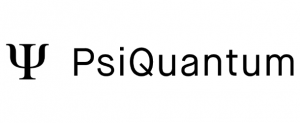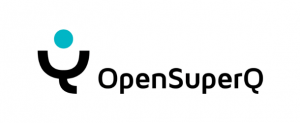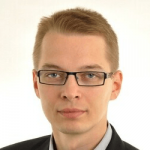Quantum News Briefs March 8: PsiQuantum opens UK-Based research facility to develop next-generation high-power cryogenic systems for large-scale quantum computing; Keysight and McGill University demonstrate 1.6 Tbps O-band coherent transmission over 10km; HCLTech to progress industrial-scale quantum applications for enterprises + MORE

Quantum News Briefs March 8: PsiQuantum opens UK-Based research facility to develop next-generation high-power cryogenic systems for large-scale quantum computing; Keysight and McGill University demonstrate 1.6 Tbps O-band coherent transmission over 10km; HCLTech to progress industrial-scale quantum applications for enterprises + MORE.
PsiQuantum opens UK-Based research facility to develop next-generation high-power cryogenic systems for large-scale quantum computing
PsiQuantum announced March 6 the opening of its UK-based advanced R&D facility at STFC’s Daresbury Laboratory in the north west of England. This effort is backed by £9M of funding from the UK government’s Department for Science, Innovation and Technology (DSIT), and gives PsiQuantum access to one of Europe’s largest liquid-helium (approx. -270°C) cryogenic plants.
PsiQuantum has teamed up with Daresbury Laboratory to develop the next generation of high-power cryogenic modules which will be necessary to scale photonic quantum computers to millions of qubits. PsiQuantum will work with Daresbury Laboratory experts specialized in large-scale cryogenic infrastructure to develop advanced cryogenic systems.
This partnership will deliver quantum computing subsystems with the highest cryogenic cooling power deployed to date, representing a major step towards large-scale quantum computers capable of solving commercially relevant problems.
PsiQuantum is building an error-corrected quantum computer which harnesses the quantum mechanical properties of single particles of light (photons). Like all leading quantum computing efforts, this requires cryogenic cooling but the advantage of a photonic approach is that the cooling requirements are far less demanding. PsiQuantum’s approach requires cryogenic cooling to operate extremely sensitive single-photon detectors, which are used to read the state of the photonic qubit.
Working with STFC’s Daresbury Laboratory will increase PsiQuantum’s cryogenic capabilities 100-fold, with single cryogenic modules capable of delivering 100W of cooling power at liquid-helium temperatures. In addition to supporting larger arrays of quantum chips, this additional cooling power will allow PsiQuantum to implement power-hungry features that are essential for scaling-up quantum computers, including chip-to-chip networking and integrated control electronics. Click here for the complete announcement.
Keysight and McGill University demonstrate 1.6 Tbps O-band coherent transmission over 10km

Keysight Technologies, Inc. and McGill University have successfully demonstrated a world record 1.2 Tbps and 1.6 Tbps O-band coherent transmissions operating over 10 km using distributed feedback lasers (DFBs) for both the carrier and local oscillator. The achievement will be presented at OFC 2023, the largest global conference for optical communications and networking professionals.
Artificial intelligence (AI), 5G, and internet of things applications are driving the demand for more bandwidth in optical networks. Leveraging high symbol rate systems increases the aggregate per-wavelength data rate to reduce the cost-per-bit in optical systems. A key trend in data centers is the transition to higher symbol rates through integrated optics, which reduces the component count, cost, and power consumption.
To address growing short-reach intra-data center traffic demands — from 2 to 10 km – coherent transmission systems are being considered as an alternative to intensity modulation direct detection (IMDD) systems that are currently operating at 200 Gbps per wavelength over 2 km in the O-band. Low chromatic dispersion makes power-efficient coherent links an attractive replacement for IMDD technologies at 1.6 Tbps and beyond.
To demonstrate improvements in short-reach intra-data center transmission rates using coherent O-band solution, Keysight, McGill University, and other research partners collaborated to achieve the record-breaking transmission. The demonstration system consisted of Keysight’s new M8199B 256 GSa/s Arbitrary Waveform Generator that delivers 75 GHz bandwidth in combination with a thin-film lithium niobate I/Q modulator with 100 GHz bandwidth and a 110 GHz 256 GSa/s Keysight Infiniium UXR-Series Oscilloscope. The accomplishment showcased how data centers can use coherent optical fiber transmission systems operating at 167 Gbaud, using dual-polarization, 64-quadrature amplitude modulation scheme to transmit signals at 1.6 Tbps in the O-band using DFBs for the carrier and local oscillators. Click here to read original announcement in-entirety.
HCLTech to progress industrial-scale quantum applications for enterprises
 HCLTech Q-Labs incubates early-stage research programs to progress capabilities towards industrial-scale quantum computing. It will be engaging with close to 1,000 employees around the world to leverage Azure Quantum resources such as Microsoft Learn, katas and workshop content to innovate quantum technologies and inspire its customers.
HCLTech Q-Labs incubates early-stage research programs to progress capabilities towards industrial-scale quantum computing. It will be engaging with close to 1,000 employees around the world to leverage Azure Quantum resources such as Microsoft Learn, katas and workshop content to innovate quantum technologies and inspire its customers.
HCLTech Q-Labs is now a part of the Azure Quantum Network, a dynamic ecosystem of quantum innovators and pioneers. It is also the recipient of an Azure Quantum Credits grant, enabling HCLTech Q-Labs to continue leading quantum hardware development to explore new algorithms, investigate use cases and experiment with world-class hardware platforms.
The HCLTech initiative is centered on Proof of Concept (POC) development with customers that will help them identify applications for quantum technologies through the various experience zones that HCLTech Q-Labs will create. Through the new HCLTech Quantum Computing Services Briefing offering on Azure Marketplace, HCLTech is furthering quantum journeys for industrial entities by advancing their use cases based on extensive market research.
“HCLTech’s addition to the Microsoft Azure Quantum Network follows the impressive engagement we’ve achieved through HCLTech Q-Labs and our excitement around the potential of HCLTech’s approach for introducing enterprises to quantum computing foundations and applications explorable right now through Proof of Concept pilots,” said Linda Lauw, Senior Director, Microsoft Azure Quantum Planning and Partnerships. “We look forward to seeing the results to come from ambitious enterprises who take advantage of HCLTech’s Quantum Computing Services Briefings and our collaboration.”
Europe’s OpenSuperQ brings in new partners & announces new 7-year agenda 1,000 qubit quantum computing system
 The project OpenSuperQPlus – part of the European Quantum Technology Flagship is underway. Quantum News Briefs summarizes a recent announcement.
The project OpenSuperQPlus – part of the European Quantum Technology Flagship is underway. Quantum News Briefs summarizes a recent announcement.
OpenSuperQPlus (Open Superconducting Quantum Computers) is funded by the European Union with 20 million euros from a specific quantum grant within the Horizon Europe framework programme. This budget goes a long way through synergies with local and national initiatives. “We are bringing together European specialists for all the components of such a quantum computing system under a unified framework – be they in the public or private sector. The technological challenge of beating errors in quantum computers and scaling them up needs all hands on deck from the outstanding quantum ecosystem in Europe“, says coordinator Frank Wilhelm-Mauch of Forschungszentrum Jülich.
OpenSuperQ is now bringing the existing team together with new partners – including the key partners of the national initiatives of the Netherlands, France, Finland, Germany, Hungary and Sweden, full-stack quantum computing startups and many other key players in the field. The large-scale follow-up project coordinated by Forschungszentrum Jülich involves a total of 28 partners from 10 countries.\
This team has formed a framework partnership and put forward an ambitious seven year agenda ultimately leading to a 1,000 qubit quantum computing system. The consortium is now launching its first stage OpenSuperQPlus 100 that on the one hand aims at developing several systems for evaluating hard- and software as well as a user-oriented 100 qubit system for first quantum applications within the next 3.5 years. With regard to the second stage it will also look at the critical components and technological decisions needed for the 1,000 qubit quantum computing system. Click here to read complete release.
Sandra K. Helsel, Ph.D. has been researching and reporting on frontier technologies since 1990. She has her Ph.D. from the University of Arizona.























